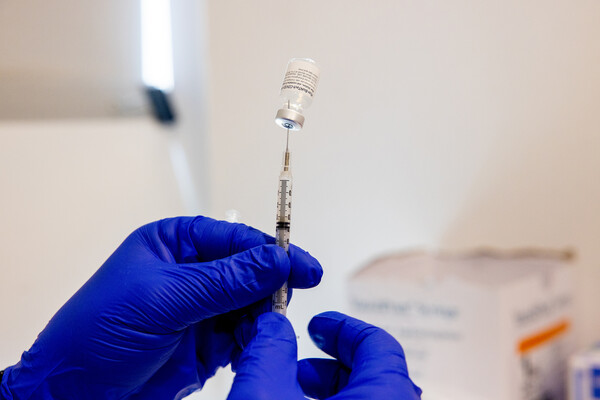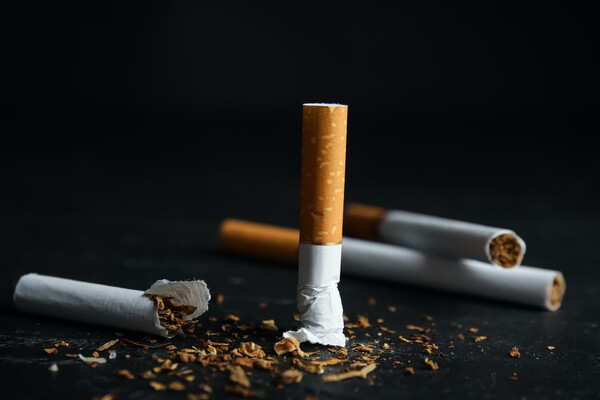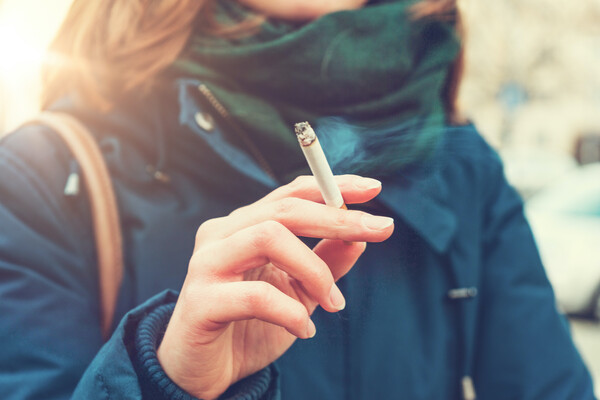4/16
Behavioral Health
Do vaccine lotteries work?
Wharton’s Katy Milkman shares the lessons learned from last year’s Philly Vax Sweepstakes, a Penn-funded project designed to evaluate ways of increasing COVID-19 vaccinations in the city.
Researching depression in low-income women
The importance of addressing depression among low-income women in multiple contexts is a theme of recent research by April Ivey, Jacqueline Corcoran, and others at Penn’s School of Social Policy & Practice.
Do art museums prioritize visitor well-being enough?
Research from the Humanities and Human Flourishing Project in Penn’s Positive Psychology Center reveals that the people working in these institutions want to see greater emphasis on human flourishing, but they feel ill-equipped to make it happen.
Targeting impulsivity early in adolescence could prevent later behavioral disorders
Tendencies toward impulsivity in early adolescence are linked with a variety of poor outcomes in later adolescence. By mid-adolescence, it may be too late to target impulsivity to prevent those developments.
‘Trusted messengers’ distill science, debunk myths about COVID-19 vaccine
VaxUpPhillyFamilies, led by Penn’s School of Nursing, engages Philadelphia parents and caregivers as vaccine ambassadors to identify concerns and provide support related to COVID-19 vaccines, increase vaccine uptake, and address social support needs.
TV news top driver of political echo chambers in U.S.
Duncan Watts and colleagues found that 17% of Americans consume television news from partisan left- or right-leaning sources compared to just 4% online. For TV news viewers, this audience segregation tends to last month over month.
Parental nicotine use and addiction risk for children
In research done using rats, Penn Nursing’s Heath Schmidt and colleagues found that males that engaged in voluntary nicotine use had offspring more likely to do so, too. Some offspring also developed impaired memory and anxiety-like behavior.
Incarceration associated with negative mental health risks for Black men
A review of literature from the past decade found that for this group in the U.S. such a detention was linked to higher levels of psychological distress, more severe symptoms of PTSD and depression, and more.
How do media depictions of tobacco influence smoking decisions for young adults?
Two studies from the Annenberg School for Communication’s Robert Hornik find that media portrayals of such behaviors can change actions and perception, but how and by how much depends on a range of factors.
Both nature and nurture contribute to signatures of socioeconomic status in the brain
In the first study of its kind, Penn researchers and an international team of collaborators found that genetics and environmental factors contribute to how socioeconomic status shapes the architecture of the brain.
In the News
Many parents give their children melatonin at night. Here’s why you may not want to
Ilene Rosen of the Perelman School of Medicine supports practicing proven-bedtime-routine behaviors and avoiding bright lights and electronics in the bedroom to encourage the body’s natural production of melatonin.
FULL STORY →
Why are older Americans drinking so much?
David Oslin of the Perelman School of Medicine says that alcohol use can have much more disastrous consequences for older adults, whose bodies cannot process it as quickly.
FULL STORY →
Best CPAP alternatives
Richard Schwab of the Perelman School of Medicine says that obstructive sleep apnea causes breathing to pause during sleep when something like the tongue or relaxed throat muscles blocks the airway.
FULL STORY →
This day of silence brings a fresh start for Bali’s new year
Mathias Basner of the Perelman School of Medicine says that human bodies interpret noise as a stressor, which can initiate increased levels of stress hormones like cortisol and adrenaline in the blood.
FULL STORY →
Struggling to keep your New Year’s resolutions? Here’s how to keep yourself on track
According to a 2012 study conducted by the Perelman School of Medicine, 65% of dieters return to their pre-diet weight within three years and only 5% of people who lose weight on a restrictive diet, such as liquid or no-carb, manage to keep the weight off.
FULL STORY →
Many believe suicide rates increase in December. Research shows it’s the opposite. Here’s why
A study conducted by the Annenberg Public Policy Center found that the winter holiday months typically have lower daily suicide rates than the rest of the year, with December showing the lowest incidences of suicides of the year.
FULL STORY →













